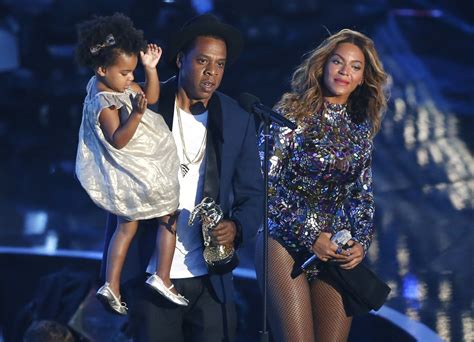
Sarah Silverman admitted she intentionally concealed the infamous “I’m F**king Matt Damon” video from her then-boyfriend, Jimmy Kimmel, fearing his reaction and potential hurt feelings, a revelation she shared on a recent episode of “The Howard Stern Show.”
Comedian Sarah Silverman confessed to keeping the widely popular “I’m F**king Matt Damon” music video a secret from her boyfriend at the time, late-night talk show host Jimmy Kimmel, due to concerns about his reaction. Silverman, who dated Kimmel for approximately five years, revealed her apprehension during a recent appearance on “The Howard Stern Show.” The comedian feared Kimmel would be hurt or upset by the suggestive nature of the video, which featured her singing about her fictional intimate relationship with actor Matt Damon.
Silverman explained to Stern that the video, a comedic response to Kimmel’s “I’m F**king Ben Affleck” skit, was created with the intention of being funny and absurd. However, she recognized that the personal connection between her, Kimmel, and Damon could complicate matters. “I didn’t tell Jimmy I made it,” Silverman confessed. “I knew it would hurt his feelings. We were fighting at the time, and I knew it would hurt his feelings.”
The video, which quickly went viral after its release in 2008, featured Silverman in bed singing about her supposed romantic encounter with Damon. It was a star-studded affair, including appearances from her sister Laura Silverman, various comedians, and even Damon himself, adding to its comedic impact. The success of the video amplified Silverman’s anxiety about Kimmel’s reaction.
“It was number one on YouTube, and I didn’t tell him,” Silverman admitted. She described the situation as a “pressure cooker” and acknowledged the inherent awkwardness of having a public and playful, yet potentially hurtful, piece of media circulating while navigating a romantic relationship. The comedian ultimately decided to avoid the topic altogether, hoping that Kimmel would not stumble upon it.
Kimmel eventually did see the video, but Silverman did not reveal exactly how or when. She did say that his reaction was “weird” but did not elaborate further on the specifics of their conversation or the aftermath of the discovery. The ambiguity surrounding Kimmel’s response leaves room for speculation about the dynamics of their relationship at the time and the challenges of navigating public and private lives as high-profile entertainers.
The “I’m F**king Matt Damon” video originated as a response to a skit that Kimmel had created with Ben Affleck. In Kimmel’s skit, he sang a song about how he was intimately involved with Affleck, a clear jab at his then-girlfriend Silverman. Silverman, viewing this as a comedic challenge, decided to one-up Kimmel with her own version, enlisting the help of Matt Damon to create a humorous and exaggerated retaliation.
The collaboration between Silverman and Damon was unexpected and added to the skit’s humor. Damon, known for his serious acting roles, willingly participated in the absurd premise, showcasing his comedic timing and willingness to poke fun at himself. This willingness to engage in self-deprecating humor resonated with audiences and contributed to the video’s widespread appeal.
The video’s release on YouTube was a pivotal moment in the early days of viral internet content. Its catchy tune, celebrity cameos, and provocative lyrics helped it quickly spread across the internet, garnering millions of views within a short period. The success of the video demonstrated the power of online platforms to disseminate comedic content and create viral sensations.
For Silverman, the video represented a significant achievement in her comedic career. It solidified her reputation as a fearless and boundary-pushing comedian willing to tackle taboo subjects with humor and wit. The video’s success also opened up new opportunities for her in the entertainment industry, leading to further television appearances and comedic projects.
However, the personal implications of the video added a layer of complexity to its success. The fact that it involved her boyfriend and another prominent actor made the situation inherently delicate. Silverman’s decision to keep the video a secret from Kimmel underscores the challenges of navigating relationships in the public eye, especially when one partner is the subject of the joke.
Silverman’s recent revelation on “The Howard Stern Show” provides a glimpse into the behind-the-scenes dynamics of her relationship with Kimmel and the challenges of balancing personal feelings with public personas. It highlights the complexities of navigating love, comedy, and fame in the entertainment industry. The story continues to resonate with audiences due to its combination of humor, celebrity intrigue, and relatable relationship dynamics.
The video’s impact extended beyond its immediate popularity. It became a cultural touchstone, referenced in other comedic works and serving as a template for future viral videos. The song’s catchphrase, “I’m F**king Matt Damon,” became a memorable and often-quoted line, solidifying its place in internet meme history.
Looking back, the “I’m F**king Matt Damon” video represents a unique moment in the evolution of internet humor and celebrity culture. It showcased the potential of online platforms to create viral sensations, highlighted the comedic talents of Sarah Silverman and Matt Damon, and underscored the complexities of navigating relationships in the public eye. Silverman’s candid reflections on the experience offer valuable insights into the challenges and rewards of pursuing a career in comedy while maintaining personal relationships. The video remains a testament to the power of humor to entertain, provoke, and even complicate our understanding of love and relationships.
The incident also raises questions about the boundaries of comedy and the extent to which personal relationships should be factored into creative decisions. Silverman’s decision to prioritize her comedic vision over potential hurt feelings highlights the sacrifices that artists sometimes make in the pursuit of their craft. It also underscores the importance of communication and understanding in navigating relationships, especially when one partner’s work involves humor that may be perceived as sensitive or controversial.
The long-term effects of the video on Silverman and Kimmel’s relationship remain somewhat unclear. While Silverman has acknowledged that Kimmel’s reaction was “weird,” she has not provided extensive details about the aftermath of the discovery. It is possible that the incident contributed to underlying tensions in their relationship, which eventually led to their breakup. However, it is also possible that they were able to move past the incident and maintain a healthy friendship.
Regardless of the specific impact on their relationship, the “I’m F**king Matt Damon” video remains a significant chapter in the history of online comedy and celebrity culture. It serves as a reminder of the power of humor to entertain, provoke, and complicate our understanding of the human experience. Silverman’s willingness to reflect on the incident with honesty and humor provides valuable insights into the challenges and rewards of pursuing a career in comedy while navigating personal relationships in the public eye.
In addition to its impact on Silverman’s personal and professional life, the video also had broader implications for the entertainment industry. It demonstrated the potential of online platforms to disrupt traditional media models and empower artists to create and distribute their own content. The success of the video paved the way for other comedians and artists to experiment with online platforms and build direct relationships with their audiences.
The video also contributed to the evolving landscape of celebrity culture. By willingly participating in the absurd premise of the video, Matt Damon demonstrated a willingness to break down the barriers between celebrities and ordinary people. His self-deprecating humor resonated with audiences and helped to humanize him in the eyes of the public. This trend of celebrities embracing humor and vulnerability has continued to grow in recent years, as more and more stars recognize the importance of connecting with their fans on a personal level.
The “I’m F**king Matt Damon” video also sparked conversations about the role of women in comedy. Silverman’s willingness to tackle taboo subjects with humor and wit challenged traditional gender roles and stereotypes. Her success in a male-dominated industry inspired other female comedians to pursue their own creative visions and push the boundaries of what is considered acceptable in comedy.
Looking ahead, the legacy of the “I’m F**king Matt Damon” video is likely to endure. It remains a classic example of internet humor at its finest, and it continues to be referenced and celebrated by fans around the world. The video’s impact on Silverman’s career, celebrity culture, and the role of women in comedy is undeniable. As the entertainment industry continues to evolve, the lessons learned from this viral sensation will continue to resonate for years to come. The video’s enduring popularity serves as a testament to the power of humor to connect people, challenge conventions, and leave a lasting impact on our culture.
The ripple effects of Silverman’s decision extended beyond her immediate circle. The video’s success inadvertently placed Matt Damon in an unusual position. Known primarily for his dramatic roles, Damon’s willingness to participate in such a raunchy and self-deprecating skit showcased a different side of his personality. This willingness to embrace the absurd helped to broaden his appeal and solidify his status as a versatile actor capable of tackling both serious and comedic roles.
For Jimmy Kimmel, the experience was likely a complex mix of emotions. On one hand, the video was a clear jab at him, albeit a comedic one. On the other hand, it was a testament to Silverman’s comedic talent and her ability to create viral content. Navigating this dynamic likely required a level of maturity and understanding, especially given the public nature of their relationship.
The “I’m F**king Matt Damon” video also sparked discussions about the ethics of comedy and the extent to which personal relationships should be considered when creating potentially offensive or hurtful material. While Silverman maintained that the video was intended as a joke, it’s undeniable that it had the potential to cause emotional distress. This raises questions about the responsibility of comedians to consider the feelings of those around them, especially when their work involves sensitive or personal topics.
The long-term impact of the video on Silverman’s career is difficult to quantify, but it’s clear that it played a significant role in shaping her public persona. It solidified her reputation as a fearless and boundary-pushing comedian willing to take risks and challenge conventions. This reputation has served her well throughout her career, allowing her to explore a wide range of comedic styles and topics.
The video also had a lasting impact on the way that celebrities interact with the internet. In the years since its release, social media has become an increasingly important tool for celebrities to connect with their fans and control their own narratives. The “I’m F**king Matt Damon” video demonstrated the power of online platforms to create viral sensations and shape public opinion, and it helped to pave the way for the social media strategies that are now commonplace in the entertainment industry.
In conclusion, the “I’m F**king Matt Damon” video was more than just a viral sensation. It was a cultural phenomenon that had a lasting impact on Silverman’s personal and professional life, as well as on the broader entertainment industry. The video’s success demonstrated the power of humor to connect people, challenge conventions, and leave a lasting mark on our culture. Silverman’s candid reflections on the experience provide valuable insights into the challenges and rewards of pursuing a career in comedy while navigating personal relationships in the public eye.
The evolution of the Silverman-Kimmel relationship post-“I’m F**king Matt Damon” is also a noteworthy element of this story. While Silverman’s recent comments suggest lingering awkwardness, the pair have seemingly maintained a level of cordiality and mutual respect over the years. This ability to navigate the complexities of a past relationship, particularly one played out in the public eye, speaks to a level of maturity and understanding on both sides. It also highlights the challenges of maintaining relationships in an industry where personal and professional lives often blur.
Moreover, the story serves as a case study in the dynamics of comedic one-upmanship. Kimmel’s original skit featuring Ben Affleck sparked Silverman’s response, creating a chain reaction of comedic retaliation. This playful back-and-forth is a common element in comedy, but it also underscores the potential for humor to inadvertently create conflict or hurt feelings. The “I’m F**king Matt Damon” video, while intended as a joke, ultimately became a source of tension and awkwardness in Silverman’s relationship with Kimmel, highlighting the fine line between harmless humor and potentially damaging personal attacks.
The video’s continued relevance in the age of social media is also worth considering. In today’s digital landscape, viral content is often fleeting, quickly replaced by the next trending topic. However, the “I’m F**king Matt Damon” video has maintained its cultural cachet, continuing to be referenced and shared years after its initial release. This enduring popularity speaks to the video’s unique blend of celebrity cameos, catchy music, and provocative humor, as well as its ability to tap into broader themes of love, jealousy, and the complexities of relationships.
Furthermore, the story raises questions about the role of authenticity in comedy. While the “I’m F**king Matt Damon” video was clearly a work of fiction, its success relied in part on the audience’s perception of Silverman’s genuine personality and comedic voice. The video felt authentic because it reflected Silverman’s willingness to push boundaries and challenge conventions. However, this authenticity also came with a cost, as it blurred the lines between her public persona and her personal life, ultimately creating tension in her relationship with Kimmel.
The “I’m F**king Matt Damon” saga underscores the ever-evolving nature of celebrity culture and the challenges of navigating the digital age. In a world where every tweet, Instagram post, and viral video has the potential to become a global sensation, celebrities are constantly under scrutiny and must carefully manage their public image. Silverman’s experience serves as a cautionary tale about the potential pitfalls of fame, as well as a testament to the power of humor to shape our perceptions of ourselves and the world around us.
Frequently Asked Questions (FAQ)
-
What was the “I’m F**king Matt Damon” video?
The “I’m F**king Matt Damon” video was a comedic song and music video created by Sarah Silverman in 2008 as a response to a skit by her then-boyfriend, Jimmy Kimmel, where he sang about being intimate with Ben Affleck. Silverman’s video featured her singing about a fictional intimate relationship with Matt Damon and became a viral sensation.
-
Why did Sarah Silverman hide the video from Jimmy Kimmel?
Silverman admitted to hiding the video from Kimmel because she feared it would hurt his feelings. They were reportedly fighting at the time, and she knew the suggestive nature of the video and its popularity could cause him emotional distress. As Silverman said, “I didn’t tell Jimmy I made it…I knew it would hurt his feelings. We were fighting at the time, and I knew it would hurt his feelings.”
-
How did Jimmy Kimmel react when he eventually saw the video?
Silverman has described Kimmel’s reaction as “weird,” but she did not provide specific details about their conversation or the aftermath of his discovery of the video. The lack of clarity leaves room for speculation about the impact on their relationship.
-
What impact did the video have on Sarah Silverman’s career?
The video significantly boosted Silverman’s career, solidifying her reputation as a fearless and boundary-pushing comedian. It led to increased visibility, further television appearances, and opened up new opportunities in the entertainment industry. The video demonstrated her ability to create viral content and connect with audiences on a large scale.
-
What is the lasting legacy of the “I’m F**king Matt Damon” video?
The video remains a cultural touchstone and a classic example of internet humor. It demonstrated the power of online platforms to create viral sensations and shape public opinion. It also highlighted the complexities of navigating relationships in the public eye and the challenges of balancing personal feelings with public personas. The video is still referenced and celebrated, cementing its place in internet meme history.








